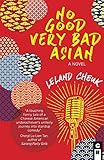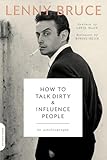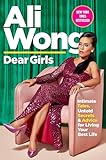1.
I’ve recently noticed a spate of work by Asian-American authors in epistolary form.
Correlation is not causation, and there may be nothing to this trend other than a cluster of coincidence. But historically, the Asian-American story has been ignored, erased, overlooked. Asians in America have worked in government, grown the nation’s food, healed the sick, fought in wars, built the very infrastructure of the transcontinental railroad, yet too often we’re pushed out of the picture, seen as perpetual foreigners, regardless of how much history we have with this country.
Asian Americans have our own experiences of racism, experiences that often get lost or minimized by the model minority stereotype. We want to have our stories heard but not fall into the trap of competing in an “Oppression Olympics” with other minorities. Our stories are distinct, and thus the idea of a letter as storytelling vessel is a tantalizing one. At its simplest, a Dear Someone letter demands to be read, as is the case with this one, in which former New York Times editor Michael Luo addresses the racist woman who told him and his family to “go back to China.”

 The word epistle comes from the Latin espistula: letter. The first epistolary novel is thought to be Love-Letters Between a Nobleman and His Sister, published anonymously in 1684. Epistolary literature often utilizes multi-character correspondence or varied documents (think: Bram Stoker’s Dracula) to drive action and deepen characterization, including the brilliant use of the email form in Maria Semple’s novel Where’d You Go Bernadette.
The word epistle comes from the Latin espistula: letter. The first epistolary novel is thought to be Love-Letters Between a Nobleman and His Sister, published anonymously in 1684. Epistolary literature often utilizes multi-character correspondence or varied documents (think: Bram Stoker’s Dracula) to drive action and deepen characterization, including the brilliant use of the email form in Maria Semple’s novel Where’d You Go Bernadette.
The following works are epistolary in a singular way. They all take the form of a Dear Someone letter, a one-way correspondence that illustrates the simultaneous power and powerlessness of the epistle as literary form. That is, the Dear Someone letter already has a clear reader in mind. But if that intended reader will actually read the epistle is not in the author’s power.
 No Good, Very Bad Asian is an epistolary novel by Leland Cheuk, “authored” by stand-up comedian and reality star Sirius Lee—divorced dad, the no good, very bad Asian of the title—to his 7-year old daughter Maryann. The letter becomes a vehicle to fill his daughter (and the reader) in on his backstory, and through his voice, provide a portrait of a guy trying and hoping to be a better person while often failing and lying to himself. It is funny but also sad, and runs at a kind of breakneck speed through different stages of comedy and a disillusioned man’s life. The incidents of subtle and not-so-subtle racism (such as everyone thinking he’s a different Asian comic) are swept away by the breezy tone, yet we can feel the hurt linger, in an experience many can relate to.
No Good, Very Bad Asian is an epistolary novel by Leland Cheuk, “authored” by stand-up comedian and reality star Sirius Lee—divorced dad, the no good, very bad Asian of the title—to his 7-year old daughter Maryann. The letter becomes a vehicle to fill his daughter (and the reader) in on his backstory, and through his voice, provide a portrait of a guy trying and hoping to be a better person while often failing and lying to himself. It is funny but also sad, and runs at a kind of breakneck speed through different stages of comedy and a disillusioned man’s life. The incidents of subtle and not-so-subtle racism (such as everyone thinking he’s a different Asian comic) are swept away by the breezy tone, yet we can feel the hurt linger, in an experience many can relate to.
The Millions: Why did you choose to write this novel as a letter?

 Leland Cheuk: I felt like I had to give the reader some sort of emotional hook into Sirius’s life story. For better or worse, bringing the reader in as part of Sirius’s family was my way of doing it. In an earlier draft, it was just written as a comedian’s memoir but there are so many brilliant comedian memoirs from real comedians—why wouldn’t the reader just pick up Born Standing Up by Steve Martin or Lenny Bruce’s How to Talk Dirty and Influence People instead?
Leland Cheuk: I felt like I had to give the reader some sort of emotional hook into Sirius’s life story. For better or worse, bringing the reader in as part of Sirius’s family was my way of doing it. In an earlier draft, it was just written as a comedian’s memoir but there are so many brilliant comedian memoirs from real comedians—why wouldn’t the reader just pick up Born Standing Up by Steve Martin or Lenny Bruce’s How to Talk Dirty and Influence People instead?
TM: Do you think, given that a spate of Asian-American novels have used this form recently, that there’s something particularly Asian-American, immigrant, diasporic about the form itself?
LC: It’s very possible. I read as many Asian-American novels as I can, but I can’t say I’m an authority on the category. I do think that the epistolary form speaks to a certain failure to communicate between generations due to cultural and language barriers that can easily be attached to the Asian-American experience.
A letter is one-way communication. In the case of my book, it’s communication that comes too late, after the point when either party can do anything about their estrangement. The irony in the book is that while Sirius’s failure to connect with his parents is related to their cultural and language gaps, Sirius’s failure to connect with his daughter has more to do with his own mistakes.
TM: Did you consciously create a character —“no good very bad” Asian who goes against basically all Asian stereotypes?
LC: I’d say some of the choices were very conscious. I didn’t want Sirius, for instance, to go to a good college and come from a life of privilege hard won by high-achieving immigrant parents, which is my background. I’m not gonna lie: I’m pretty good at math. I just tried to make Sirius’s life—and rise to and fall from fame—plausible within the pop culture of the last two decades. And that naturally required him to not be the “good Asian” who might be your doctor or accountant.
TM: What was your idea or inspiration for the book. Any other writers influence you?
LC: I started the book so long ago, I’m not even sure I remember. I’ve always been a fan of stand-up and my other writing is often comedic. Stand-up is a perfect art form to use to explore themes of identity and self. There are very few other endeavors where you’re standing in front of a crowd and receiving a judgment for what you look like and what you say every 10 to 15 seconds. Perhaps I could have written a similar book about being a famous Asian-American male model. I’m influenced by a lot of writers, but with this book, I was going for what authors like Paul Beatty and Mat Johnson go for in their novels.
2.
 Vietnamese American Ocean Vuong’s novel On Earth We’re Briefly Gorgeous is also written as a letter: “Dear Ma,” it starts; the first chapter was also published in The New Yorker as a personal history titled “A Letter to My Mother That She Will Never Read.” Vuong told Lithub of his choice to use a letter:
Vietnamese American Ocean Vuong’s novel On Earth We’re Briefly Gorgeous is also written as a letter: “Dear Ma,” it starts; the first chapter was also published in The New Yorker as a personal history titled “A Letter to My Mother That She Will Never Read.” Vuong told Lithub of his choice to use a letter:
Because I knew I did not want to write a 600-page tome, the epistolary mode allowed me the quick detours and returns, while still retaining the vital urgency and vulnerability of a direct address. In this way, the voice, the letter itself, became the main plot, the digressions in memory, cultural investigations, and vignettes its tributaries. And the whale, ever fleeting, out of reach, and finally impossible, is the mother’s readership of the letter.
 Yiyun Li’s memoiristic collection of essays, Dear Friend, from My Life I Write to You in Your Life, is a straightforward address to readers—and takes its title from a line in Katherine Mansfield’s notebooks. The essays, which span topics like reading, writing, and science, circle around a difficult period in Li’s life, ruminating on the sometimes unremitting darkness she feels, but also why she wants to continue writing: that “the books one writes—past and present and future—are they not trying to say the same thing: Dear friend, from my life I write to you in your life? What a long way it is from one life to another, yet why write if not for that distance, if thinks can be let go, every before replaced by an after.”
Yiyun Li’s memoiristic collection of essays, Dear Friend, from My Life I Write to You in Your Life, is a straightforward address to readers—and takes its title from a line in Katherine Mansfield’s notebooks. The essays, which span topics like reading, writing, and science, circle around a difficult period in Li’s life, ruminating on the sometimes unremitting darkness she feels, but also why she wants to continue writing: that “the books one writes—past and present and future—are they not trying to say the same thing: Dear friend, from my life I write to you in your life? What a long way it is from one life to another, yet why write if not for that distance, if thinks can be let go, every before replaced by an after.”
 Ali Wong’s ribald, humorous memoir, Dear Girls, is addressed to her daughters who are still too young to read and understand the book. Wong’s first book, it has a kind of literary flair that separates it from her stand-up—and from those comedian memoirs that are a stand-up act reformatted into a book. It’s a perfect pairing with No Good, Very Bad Asian, covering some of the same ground, including the idea of a parent wanting to give her children a fuller, more complex idea of who they are as individuals. Also, Wong is a wonderful writer. I was fascinated to read in The New York Times that she tests new jokes in front of live audiences by using a robotic “monotone voice where there’s almost zero performance in there, to see if the material holds up.” This is similar to the writer’s internal process: Does this sound right? Does this sound wrong? Wong looks to see if the crowd laughs despite her emotionless delivery. “Sometimes, I have a joke I know is funny, but I haven’t found the right word, and when I do find it, it’s so satisfying.”
Ali Wong’s ribald, humorous memoir, Dear Girls, is addressed to her daughters who are still too young to read and understand the book. Wong’s first book, it has a kind of literary flair that separates it from her stand-up—and from those comedian memoirs that are a stand-up act reformatted into a book. It’s a perfect pairing with No Good, Very Bad Asian, covering some of the same ground, including the idea of a parent wanting to give her children a fuller, more complex idea of who they are as individuals. Also, Wong is a wonderful writer. I was fascinated to read in The New York Times that she tests new jokes in front of live audiences by using a robotic “monotone voice where there’s almost zero performance in there, to see if the material holds up.” This is similar to the writer’s internal process: Does this sound right? Does this sound wrong? Wong looks to see if the crowd laughs despite her emotionless delivery. “Sometimes, I have a joke I know is funny, but I haven’t found the right word, and when I do find it, it’s so satisfying.”
Image: David Pennington









